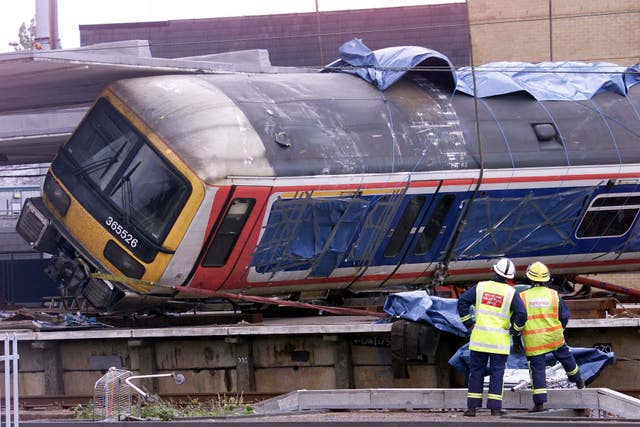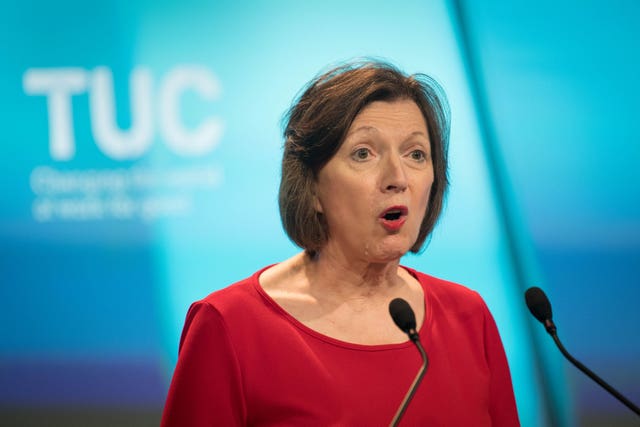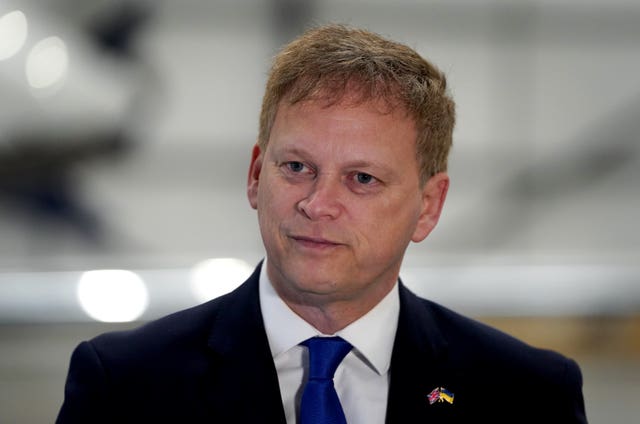
Clive Bull 1am - 4am
4 May 2022, 00:04

The TUC said it would be ‘impossible’ to make planned cuts without losing ‘safety-critical jobs’.
Rail funding cuts will increase the risk of serious train crashes, trade unions have claimed.
A report by the Trade Unions Congress (TUC) stated that Network Rail plans to slash its annual expenditure by £100 million, mainly through the loss of 2,500 maintenance jobs.
The union organisation believes it is “impossible” to make such cuts without losing “safety-critical jobs”.

It also warned that train timetables will be reduced as the Treasury has ordered the Department for Transport (DfT) to bring down its annual budget by 10%.
The TUC’s report said: “These cuts threaten essential services and maintenance, and increase the risk of the types of accidents that marked the first decades of privatised rail.”
Britain’s railways were hit by a series of deadly crashes in the years after train operation was privatised in the mid-1990s.
These included accidents at Southall, west London in September 1997; Ladbroke Grove, west London in October 1999; Hatfield, Hertfordshire in October 2000; and Potters Bar, Hertfordshire in May 2002.
Infrastructure maintenance was the responsibility of private firm Railtrack during this period.

The company was replaced by public sector body Network Rail in October 2002.
TUC general secretary Frances O’Grady said: “We all want good transport links for our community, with frequent, safe, reliable and affordable trains.
“But if the Network Rail cuts go ahead it will mean the loss of safety-critical jobs and a greater risk of serious accidents like Stonehaven, Potters Bar and Hatfield.
“Ministers must not risk passenger safety through funding cuts to Network Rail.”
Three people died in a crash at Stonehaven, Aberdeenshire in August 2020.
On the potential for cuts in services, Ms O’Grady said: “Our railways are still recovering after the pandemic. The last thing the Government should be doing is slashing funding.
“But ministers are demanding cuts that would disrupt services and see fewer trains on our railways.
“We need a better vision for the future of Britain’s railways than commuters packed like sardines in unsafe trains.”
Members of the Rail, Maritime and Transport (RMT) union are being balloted for strikes over jobs, pay and working conditions, while the Transport Salaried Staffs’ Association (TSSA) is also threatening action.
The RMT claims a yes vote could lead to the biggest rail strike in modern history.

Responding to the TUC report, a Network Rail spokesman said: “Britain’s railway is the safest major network in Europe, and we’d never make changes that would compromise that hard-won achievement.
“The modernisation proposals we’ve put on the table would help our workforce be more flexible, enabling us to avoid compulsory job losses.
“The ideas would also help our workforce be safer because they won’t work on live tracks as often. So far our ideas have fallen on deaf ears.”
Latest DfT figures show rail use is at around 75% of pre-coronavirus pandemic levels.
The UK, Scottish and Welsh Governments have spent billions of pounds after taking on the financial liabilities of train operators during the virus crisis.
Last week, Transport Secretary Grant Shapps told the Commons’ Transport Select Committee that “we had to put in £15 billion to ensure that not a single person lost their job and that we could keep a railway running”.
The Cabinet minister said: “We need to modernise our railway in response to the change in travel patterns.”
He added: “We have to have workforce reform, otherwise we will literally be expecting the taxpayer to pay for our railways and not for our NHS.”
A DfT spokesperson said: “Safety remains a top priority for all parties including Government and employers. The industry is exploring a range of reform options but none of these should lead to the reduction of safety standards nor impact the railways’ safety for passengers. Industry will still have to fulfil their legal obligations in respect of health and safety.
“We want a reliable railway with fewer delays and disruptions without impacting the safety of passengers or workers.”